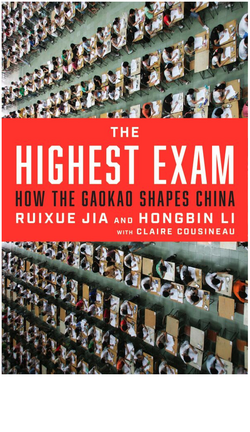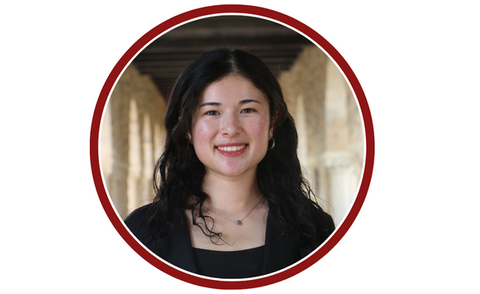China Labor, Income and Population

The China Labor, Income and Population (CLIP) research program focuses on key areas essential for understanding the complexities of China’s labor market and its role in the Chinese economy. We study labor quantity (population), labor quality (human capital), income, and the interactions between technology and labor, while also examining the role of China’s unique institutions, such as the gaokao exam system, hukou system, and the state, in shaping the labor market.
The Highest Exam: How the Gaokao Shapes China

A new book, The Highest Exam: How the Gaokao Shapes China, offers an unprecedented look into the exam that has defined the futures of tens of millions of Chinese students—and in turn, the trajectory of modern China itself. Written by leading scholars Ruixue Jia and Hongbin Li, with writer and researcher Claire Cousineau, the book combines rigorous research with compelling personal narratives to reveal how the gaokao has become more than a test: it is a mirror of Chinese society.
Through analysis and narrative, the book illustrates how the exam system reflects broader themes in Chinese society: the pursuit of meritocracy, the tension between equality and advantage, and the state’s reliance on education to reinforce legitimacy. The authors aptly identify China’s education system as a centralized hierarchical tournament, returning to this framework in each section of the book: family, state, and society.
Media Coverage:
The Wall Street Journal: The Test that Rules Chinese Society
Kirkus Review: Book Review of The Highest Exam
The Wall Street Journal: ‘The Highest Exam’ Review: China’s Big Test
Harvard University Press: Understanding China’s Gaokao Exam
The Wire China: Hongbin Li on How the Gaokao Shapes China
China of Tomorrow Podcast: The System that Shapes China
Andrew Batson's Blog: Exams are Everything in China
LA Review of Books: Social Mobility and Stagnation
New Books Network Podcast: The Highest Exam
The Economist selected The Highest Exam as one best books of 2025.
Hongbin Li
Lingsheng Meng
Grant Miller
Elizabeth M. Bours
Related Publications
Ruixue Jia, Gaurav Khanna, Hongbin Li, Yul Xu (2025). The Ripple Effects of China’s College Expansion on American Universities. National Bureau of Economic Research (NBER).
Ruixue Jia, Hongbin Li, Claire Cousineau (2025). The Highest Exam: How the Gaokao Shapes China. Harvard University Press.
Hongbin Li, Lingsheng Meng, Grant Miller, Hanmo Yang (2025). Bureaucratic Incentives and Effectiveness of the One Child Policy in China. National Bureau of Economic Research (NBER).
Chong-En Bai, Ruixue Jia, Hongbin Li and Xin Wang (2024). Entrepreneurial Reluctance: Academic Talent and Firm Creation in China. Economic Journal.
Daniela Scur, Scott Ohlmacher, Hongbin Li, et. al, (2024). The International Empirics of Management. PNAS.
Hongbin Li, Lingsheng Meng, Kai Mu and Shaoda Wang (2024). English Language Requirement and Educational Inequality: Evidence from 16 Million College Applicants in China. Journal of Development Economics.
Huan Wang, Claire Cousineau, Matthew Boswell and Hongbin Li (2024). Estimating the Impact of Rural Hukou Status on Earnings for College Graduates in China. China Quarterly.
Ruixue Jia, Hongbin Li and Lingsheng Meng (2024). Elite College Education and Social Mobility in China. Economic Development and Cultural Change.
Dezhuang Hu, Hongbin Li, Tang Li, Lingsheng Meng and Binh Thai Nguyen (2023). The Burden of Education Costs in China: A Struggle for All, but Heavier for Lower-Income Families. SSRN Working Paper.
Hongbin Li, Huan Wang, Claire Cousineau and Matthew Boswell (2023). What Can Students Gain from China's Higher Education? Asian Economic Policy Review.
Hongbin Li, James Liang and Binzhen Wu (2023). Labor Market Experience and Returns to College Education in Fast Growing Economies. Journal of Human Resources.
Hongbin Li, Lingsheng Meng, Yanyan Xiong and Sinclair L. Cook (2023). Job Preferences and Outcomes for China's College Graduates. China Quarterly.
Hongbin Li and Xinyao Qiu (2023). Heuristics in Self-Evaluation: Evidence form the Centralized College Admission Systems in China. Review of Economics and Statistics.
Lingsheng Meng, Yunbin Zhang and Ben Zou (2023). The Motherhood Penalty in China: Magnitudes, Trends, and the Role of Grandparenting. Journal of Comparative Economics.
Maoliang Ye, Junsen Zhang and Hongbin Li (2023). Twins, Income, and Happiness: Evidence from China. Proceedings of the National Academy of Sciences.
Hongbin Li, Lei Li, and Hong Ma (2022). China’s Skill-Biased Imports. China Economic Review.
Hongbin Li and Lingsheng Meng (2022). The Scarring Effects of College Education Deprivation during China’s Cultural Revolution. Economic Development and Cultural Change.
Hongbin Li and Lingsheng Meng (2022). Skill Biased Tax Policy Change: Labor Market Effects of China’s VAT Reform. Labour Economics.
Hong Cheng, Hongbin Li and Tang Li (2021). The Performance of State-Owned Enterprises: New Evidence from the China Employer-Employee Survey. Economic Development and Cultural Change.
Ruixue Jia and Hongbin Li (2021). Just Above the Exam Cutoff Score: Elite College Admission and Wages in China. Journal of Public Economics.
Guangsu Zhou, Gaosi Chu, Lixing Li and Lingsheng Meng (2020). The Effect of Artificial Intelligence on China’s Labor Market. China Economic Journal.
Hanming Fang, Chunmian Ge, Hanwei Huang and Hongbin Li (2020). Pandemics, Global Supply Chains, and Local Labor Demand: Evidence from 100 Million Posted Jobs in China. NBER Working Paper.
Hong Cheng, Dezhuang Hu and Hongbin Li (2020). Wage Differential between Rural Migrant and Urban Workers in the People’s Republic of China. Asian Development Review.
Douglas Almond, Hongbin Li and Shuang Zhang (2019). Land Reform and Sex Selection in China. Journal of Political Economy.
Hong Cheng, Ruixue Jia, Hongbin Li and Dandan Li (2019). The Rise of Robots in China. Journal of Economic Perspectives.






